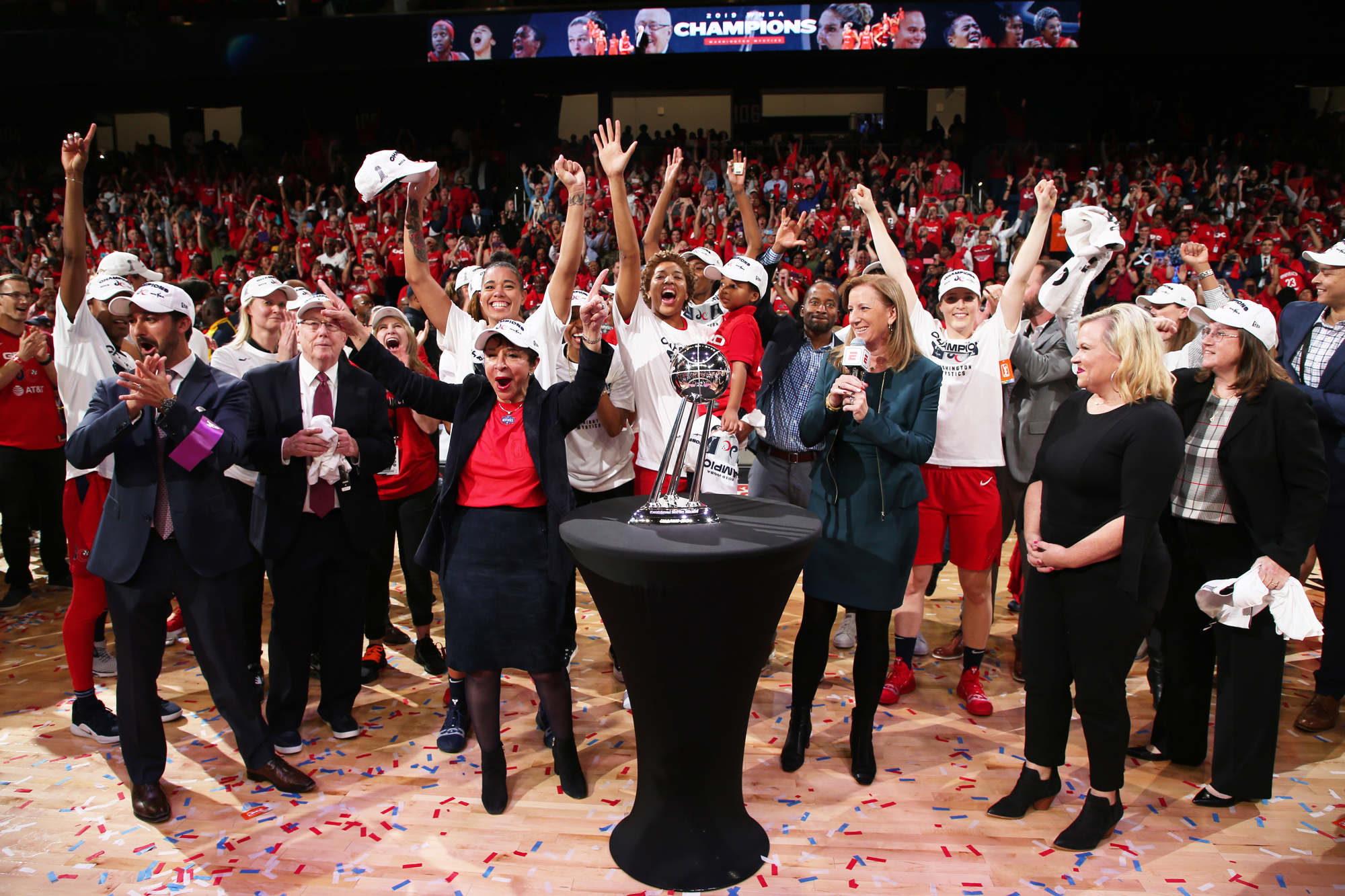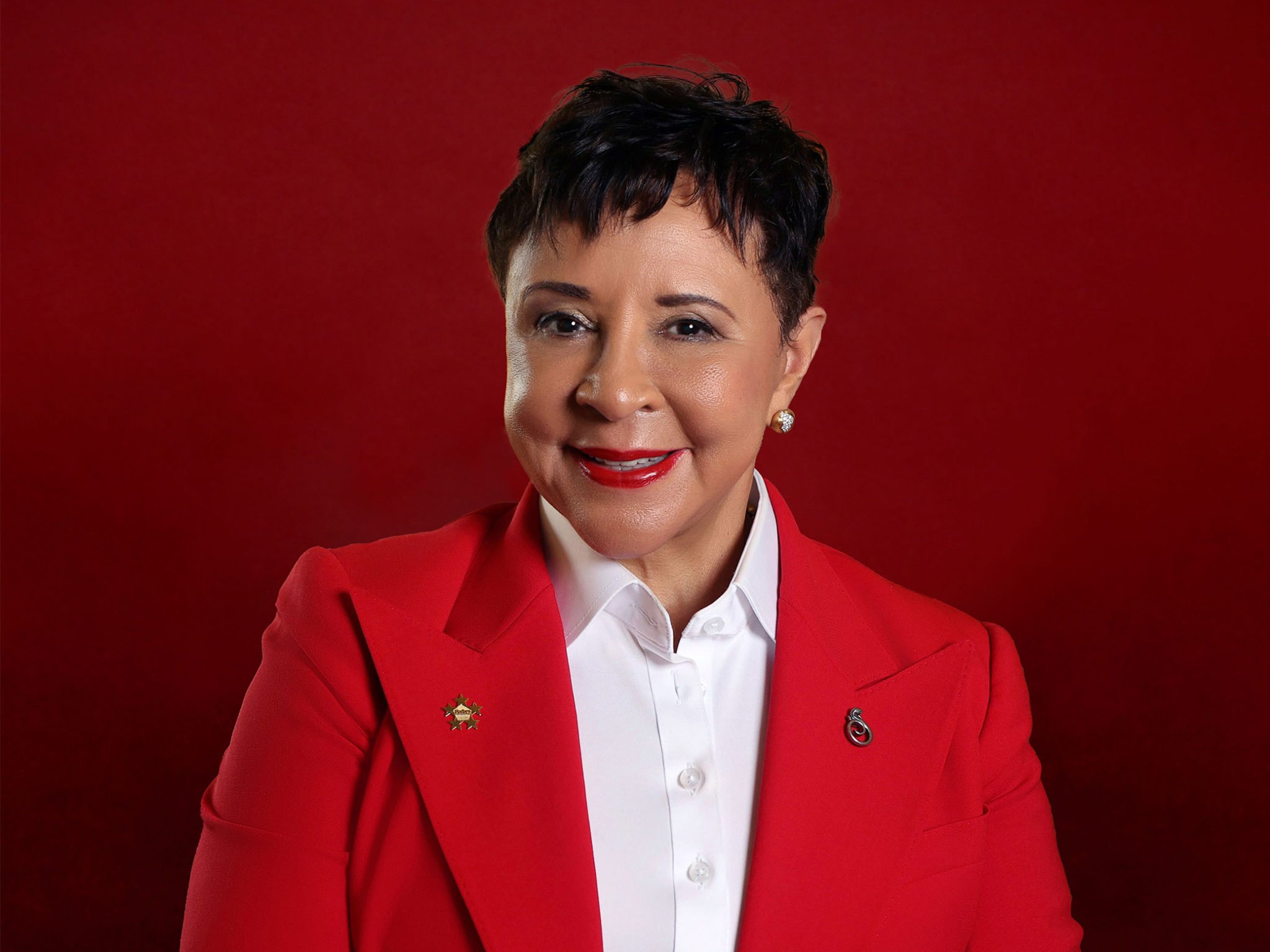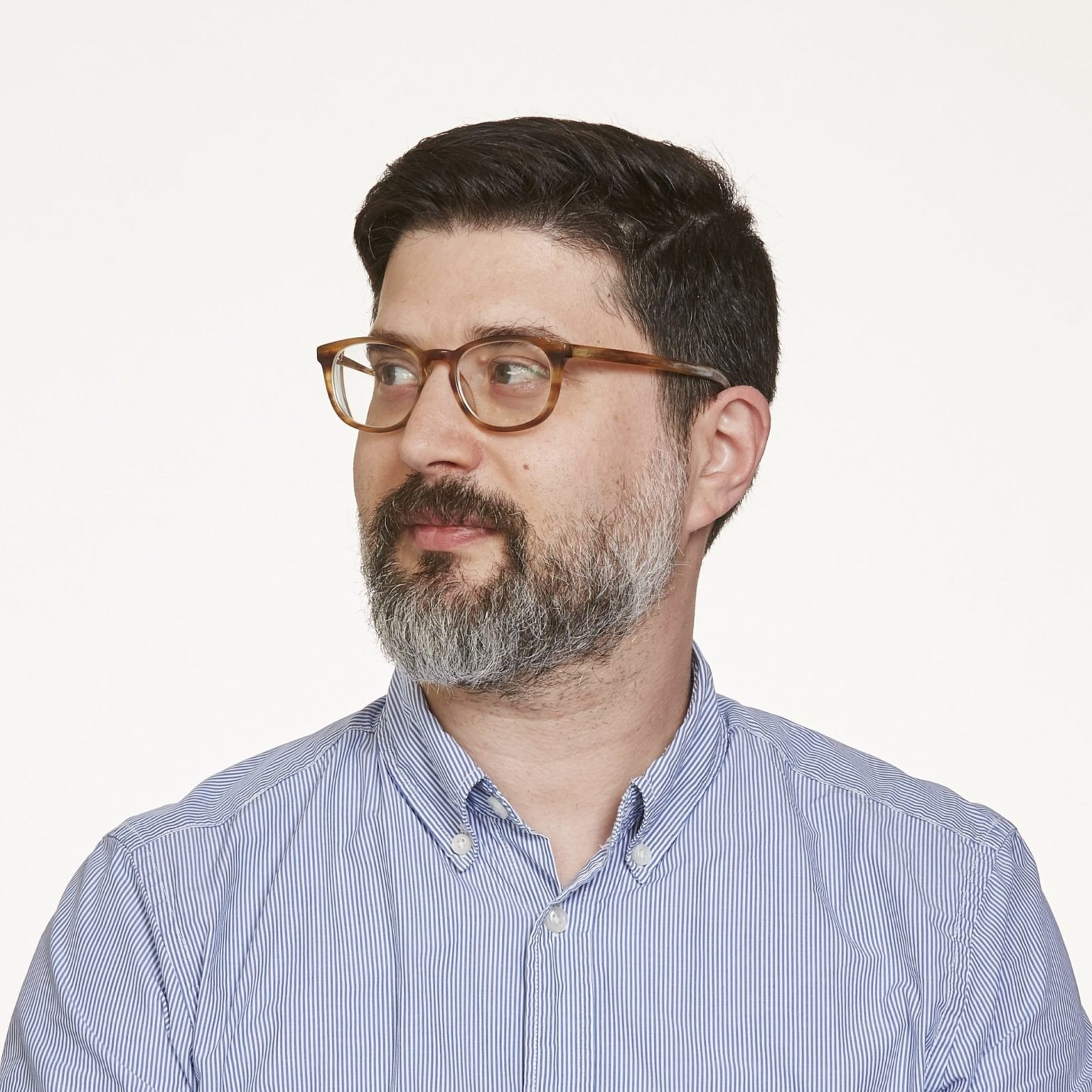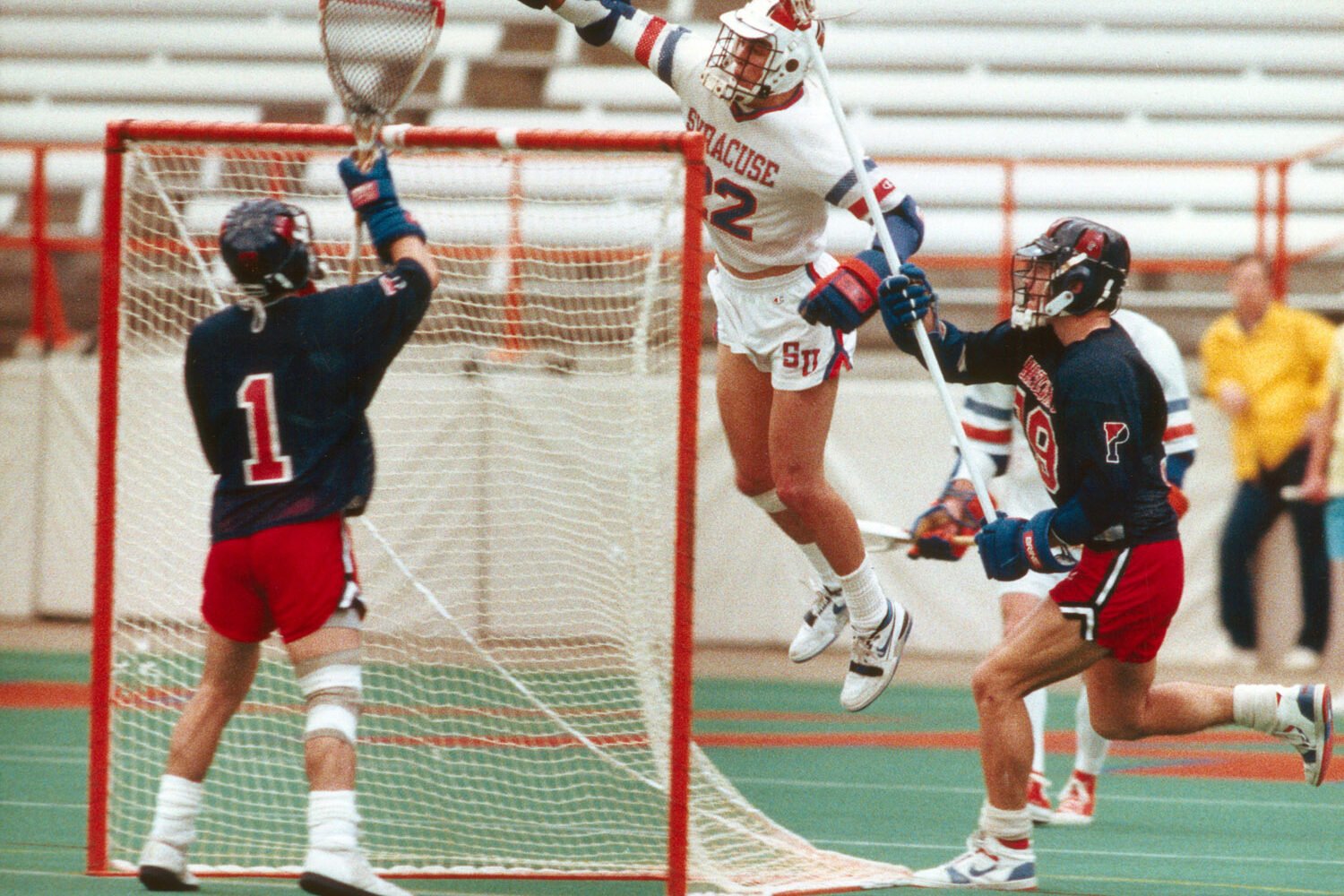Sheila Johnson was walking through Times Square when she found out that the company she cofounded, BET, had been sold: She learned of the life-changing deal when she happened to see it on a news ticker. It was November 2000, and the sale—worth around $3 billion—made her unimaginably wealthy. It should have been a triumphant moment, but Johnson was in a bad place. Her marriage was collapsing, and her husband, Robert Johnson, had fired her from the company they’d created.
Now Johnson has written a memoir, Walk Through Fire, that tells that story and many others, including the messy ones. A violin prodigy who spent much of her childhood in Illinois, she moved to Washington in the early ’70s and gave music lessons to pay the bills. In the book, Johnson chronicles how she helped establish BET amid what she describes as decades of infidelity and emotional abuse—and how she rebuilt her life.
Today, Johnson lives in Middleburg and runs the Salamander Collection, her chain of seven hotels and resorts, the newest of which opened last year in DC. She’s also part owner of Monumental Sports & Entertainment and founder of the Middleburg Film Festival, among other things. I recently caught up with her at the Salamander in Middleburg, a horse-country getaway that’s a long way from the modest Colonial house in Northwest DC where she and Robert lived when they hatched BET.
I want to start by traveling back in time to, let’s say, early 1980, when you’re at home on Brandywine Street, giving a violin lesson to a student. You and Bob have started BET, but it hasn’t yet launched. What is it like for you at that moment?
I was trying to juggle my life. BET was at the precipice of really—hopefully—taking off. But also, I had to get the bills paid. I was educating myself on how to balance trying to get a media company started and also keeping my [music-teaching] career going. I was always doing the math of how many students did I need.
I have to confess that this actually is not a hypothetical scenario: That student in the basement was me. I took violin lessons from you for several years back then.
Are you kidding me? Oh, my goodness. Hi! You’ve changed a lot. [Laughs.]
I brought a photo of us together during a performance at Children’s Hospital.
Oh, that was an interesting situation. Do you remember what happened?
My sister recalls that there was a patient in the audience who woke up from a coma?
Yes, that was Claudia. She took piano lessons from a friend of mine. You guys were playing “Long, Long Ago,” and all of a sudden—after seven brain operations—she looked up. Because she recognized the song! She had been studying the same piece. The doctors kept saying, “Keep playing, keep playing, keep playing.”
I was quite young back then, but I remember being aware that you’d started a cable-TV network and being impressed but also not really getting what that meant.
Yeah, that was during the birth of cable. We decided to start BET because we realized the African American audience did not have a voice through the cable system.
Was there a sense that success was inevitable, or was it a time of uncertainty?
I knew in my gut it was going to take off, because everyone was just so happy to have a Black network they could identify with. It’s just like me building [the Salamander resorts]. There are so many guests that tell me how proud they are that I’ve done this.
You’ve spent your whole life going into spaces that are not traditionally thought of as being Black spaces. Where did that impulse come from?
I think it’s a combination of instinct and just wanting to do it. I didn’t think very hard about it. Becoming a violinist: I never thought about it. Going to the University of Illinois: I was the only Black student in the fine-arts department. But I didn’t let it stop me from aspiring to what I wanted to do. I was the first Black cheerleader [at the university]. You know, I got teased about that, but I went on and did it. Because I just wanted to. And, well, the same thing with BET.
But why was it you who kept being first?
Because no one else was doing it. [Laughs.] No one else was doing it.
You did have an incredible drive from a very early age.
Did you recognize that in me when you were little?
No, you were just the nice person who taught me how to play the Ice Castles theme. But in your book, you write about, for example, obsessively practicing your violin to the point where your mother was like, “Enough, Sheila.”
I know. No one could understand why I was doing it.
Do you understand? Where does that come from? It seems like you still have it.
Yeah. I don’t know what’s driving me. It gets a little tiring, because there’s even times when I’ve come [into the Middleburg resort] and I’ll find a spot on the rug, or the plaque outside needs polishing. I have always, always strived for excellence. Even when I was teaching you! I wanted students to be the best, and you were a darn good orchestra.
You’ve now launched two very successful businesses from scratch. Were there things you learned the first time that were useful the second time?
Leadership can never be underestimated. If you’re a leader of a company, a CEO, you have to be an example. You want your employees to respect you. [You can’t] treat people poorly or live your life poorly. Believe me, those employees are noticing everything.
I’ve also learned as a good leader to be able to communicate with my employees, respect them, acknowledge them, and move them around so that they can feel a part of what we’re trying to grow. I’m giving them experiences because I want them to grow in my company and aspire to be the next generation of leaders.
You’re also a part owner of Monumental, which owns the Mystics, the Wizards, and the Capitals. What makes for a good sports-team owner?
I’ve learned this the hard way. [Laughs.] Hire good people that can run the operation. As owners, you should stay out of it. You really should. Owning teams is a vanity play: You get to sit in the owners’ box, you can boast about being a team owner, you can show [off] your championship ring. It’s wonderful.

A question I had when I started the book was what it’s like to go from being a regular person to being enormously wealthy.
Well, there’s a real downside to being wealthy. People get greedy; they become dishonest. I think they lose respect for you if they don’t get what they want from you. They treat you badly. [Some] people just want something from you—they don’t want to be your friend.
And you never know which is which.
And you never know which is which, which is the scariest part. It’s also scary just raising two kids, to make sure they have values. But there are people out there—I call them energetic vampires—that want to come on your coattails because they want to take what you have. That’s what was happening a lot.
There’s a real downside to being wealthy. People get greedy; they become dishonest. They treat you badly
That time around the BET sale was a particularly difficult one in your life.
I was leading up to a divorce. And I’m like, okay: I’ve got to get my share. Part of me was so angry. I had put my heart and soul behind that company, and I literally had been airbrushed.
You write about how invasive and upsetting it felt when the media was writing about your personal life back then, yet this book is extremely candid.
I wanted [readers to] hear from me what I had been going through—the hurt that me and the kids have gone through.
You also explore deeply personal things like how you sometimes feel like an outsider, even today. Did you struggle with whether to include that kind of thing?
No, because these are things I have been wrestling with all my life. I’ve never been a person that fits in. I’m not a joiner. I remember going to college during the Black Power movement. Being as fair as I am, I was too light to be Black; I was too dark to be white. I was never really accepted by anyone. I just didn’t know where to fit in.
I’ve had a couple of people say, “Well, why do you want to write this book?” Because I want to tell my story, but also I think people need to start talking more to one another. Because it will help with mental illness, mental health—there’s just so much that is going on. People should share their stories.
I get a little annoyed when people go, “Oh, you’re the first Black African American billionaire woman” and they think I had it easy. I didn’t.
Is it uncomfortable sitting here knowing I’ve read all this incredibly personal stuff?
No, not at all.
For me, it’s a little weird reading about you having a breakdown inside Tree Top Toys, my favorite childhood toy store.
Yeah, I know. [Laughs.] How do you feel about it?
You’re somebody I’ve looked up to for a long time, but I never knew anything about your internal life. It’s strange for me to read!
Does it make you feel uncomfortable?
I mean, a lot of people share the same difficulties.
Exactly, exactly. Nobody’s life is perfect. And because [gossip about me] was out there already, people were making assumptions of what was going on in my life. I wanted to get the story straight.
This article appears in the October 2023 issue of Washingtonian.



















